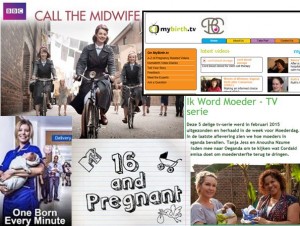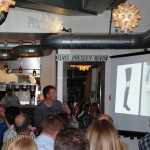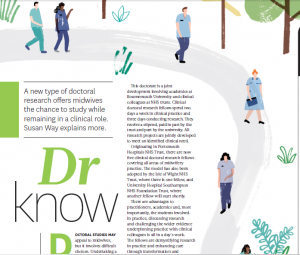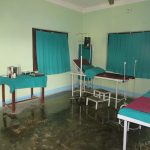Monday
Graduate Earnings
The Bank of England has said that those leaving university could expect to earn more over their working lives than people without academic qualifications, but that the wage premium had been cut from 45% to 34% between 1995 and 2015. Growth in university education is affecting graduate earning power (Guardian).
Tuesday
Degree Apprenticeships
A new report published by UUK encourages universities, government and employers to develop degree apprenticeships. The report finds that degree apprenticeships are particularly attractive to non-traditional students, providing an opportunity for universities to support widening participation goals. You can download the report here.
Wednesday
Budget
The Chancellor, George Osborne delivered the budget which revealed the following for higher education:
- Direct government support will be available to adults wishing to study at any qualification level, from basic skills right the way up to PhD. During this parliament, loans will be introduced for level 3 to level 6 training in further education, part-time second degrees in STEM, and postgraduate taught master’s courses.
- From 2018-19, loans of up to £25,000 will be available to any English student without a Research Council living allowance who can win a place for doctoral study at a UK university- a consultation will follow.
- The government will also extend the eligibility of master’s loans to include three-year part-time courses with no full-time equivalent.
- The government will continue to free up student number controls for alternative providers predominantly offering degree level courses for the 2017-18 academic year.
- The government will bring together information about the wages of graduates of different courses and the financial support available across further and higher education to ensure that people can make informed decisions about the right courses for them.
You can view an article in the THE on the implications of the 2016 budget for HE here.
Thursday
UK and China
Organisations in the UK and China have developed a statement of principles aimed at enhancing the quality of transnational education (TNE) programmes between the countries. UK and China agree deal on ‘high-quality’ cross-border education. (THE).
Department of Education
The Education white paper has confirmed a shift to school-led teacher training. The paper revealed that Universities can support teacher training by conducting excellent research but new teachers are best trained in schools. Back to Schools (Research Professional).
Friday
Sexual Violence
A taskforce set up to crack down on sexual violence on campus has recommended the overhaul of much-criticised rules governing how universities deal with allegations. University leaders call for new rules on sexual violence allegations. (The Guardian).
Quality
HEFCE has today published its new model and framework for quality assessment in the UK. The proposals introduce a two-track assurance process for new and established providers which will apply as of 2017/18, with piloting to take place in 2016/17. The framework will apply to England and Northern Ireland, with the high-level proposals to be taken forward in Wales subject to further consultation. You can view the new model here.
 Our latest paper in the international journal BMC Pregnancy & Childbirth published late last month was highlighted yesterday in a
Our latest paper in the international journal BMC Pregnancy & Childbirth published late last month was highlighted yesterday in a  Our paper is great example of interdisciplinary research, as celebrated at the forthcoming Interdisciplinary Research Sector Day on June 21st (
Our paper is great example of interdisciplinary research, as celebrated at the forthcoming Interdisciplinary Research Sector Day on June 21st (
 Doing a PhD may appeal to midwives and other NHS health professionals, but it often involves having to make difficult choices. Undertaking a part-time PhD means studying on top of a busy clinical position, but starting full-time study involves stepping away from practice, which may lead to a loss of clinical skills and confidence. The Centre for Midwifery, Maternal & Perinatal Health (CMMPH) at Bournemouth University has come up with a novel solution making it easier for midwives to undertake a doctorate while still maintaining their clinical skills. This approach is highlighted in the latest publication by Dr. Susan Way and colleagues, describing a process where CMMPH collaborate with NHS partners to apply for a match-funded PhD. [1] The first partnership was with Portsmouth Hospitals NHS Foundation Trust (PHT), with later partners expanded to cover the Isle of Wight and Southampton. Currently there are negotiations with Dorset Country Hospital NHS Foundation Trust and Poole Hospital NHS Foundation Trust. Non NHS organisations have also showed an interest with the Anglo European Chiropractic College (AECC) our likely next collaborator.
Doing a PhD may appeal to midwives and other NHS health professionals, but it often involves having to make difficult choices. Undertaking a part-time PhD means studying on top of a busy clinical position, but starting full-time study involves stepping away from practice, which may lead to a loss of clinical skills and confidence. The Centre for Midwifery, Maternal & Perinatal Health (CMMPH) at Bournemouth University has come up with a novel solution making it easier for midwives to undertake a doctorate while still maintaining their clinical skills. This approach is highlighted in the latest publication by Dr. Susan Way and colleagues, describing a process where CMMPH collaborate with NHS partners to apply for a match-funded PhD. [1] The first partnership was with Portsmouth Hospitals NHS Foundation Trust (PHT), with later partners expanded to cover the Isle of Wight and Southampton. Currently there are negotiations with Dorset Country Hospital NHS Foundation Trust and Poole Hospital NHS Foundation Trust. Non NHS organisations have also showed an interest with the Anglo European Chiropractic College (AECC) our likely next collaborator.












 ESRC Festival of Social Science 2024 Open Call – Deadline for Applications Thursday 16 May
ESRC Festival of Social Science 2024 Open Call – Deadline for Applications Thursday 16 May We can help promote your public engagement event or activity
We can help promote your public engagement event or activity New Seed Fund for Public Engagement with Research: Last Six Funding Opportunities Available
New Seed Fund for Public Engagement with Research: Last Six Funding Opportunities Available Congratulation on new interdisciplinary publication
Congratulation on new interdisciplinary publication BU professor speaking at Aberdeen Centre for Women’s Health Research (ACWHR)
BU professor speaking at Aberdeen Centre for Women’s Health Research (ACWHR) New seed fund for public engagement with research: open for applications
New seed fund for public engagement with research: open for applications Horizon Europe News – December 2023
Horizon Europe News – December 2023